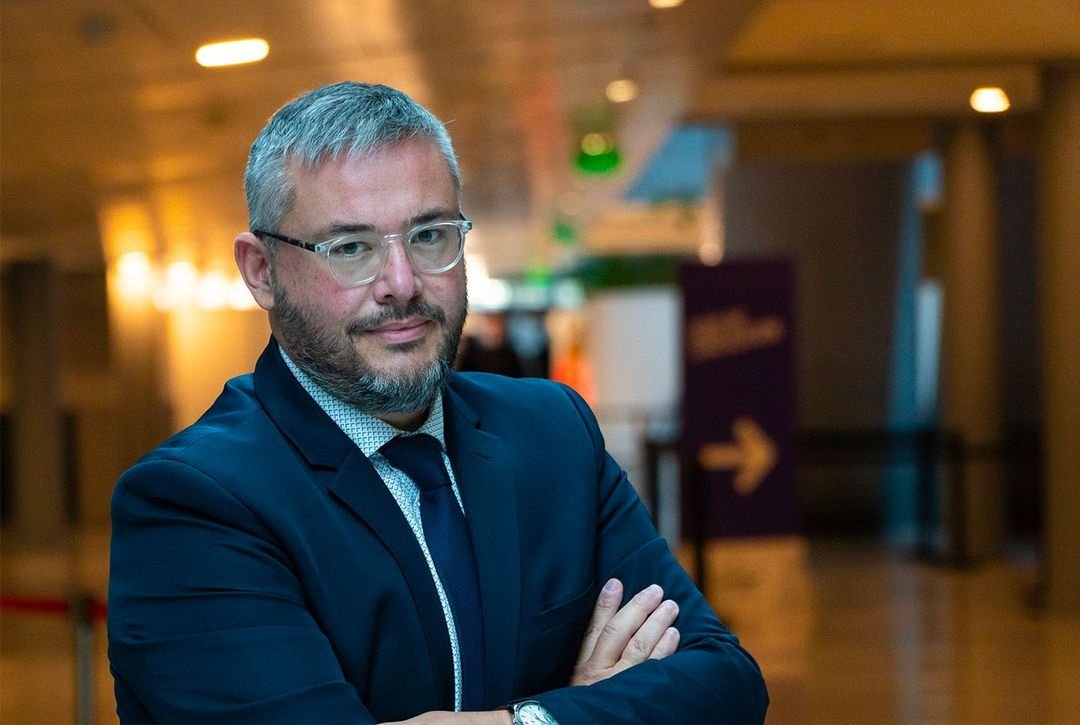Call for Papers
2025 AMS World Marketing Congress
The Role of Marketing in Reshaping the Dynamic Landscape of Business: Innovation, Sustainability, and Legitimacy
July 02-04, 2025 • Dijon, Burgundy, France
#AMSWMC25DIJON
The new millennium and the various crises that society witnessed and is still witnessing today is reshaping the whole business landscape. Marketing theory and practice play a decisive role in understanding changing consumption patterns and developing new business models. To effectively enable new strategies, companies must embrace innovations in research and product development, and sustainable business practices in manufacturing and distribution, while complying with regulations.
Innovation plays a focal role in the sustainability journey of firms. As markets become more competitive and global challenges intensify, innovative solutions become imperative for addressing sustainability issues. Firms that create a sustainability culture, embrace technological advancements, invest in research and development, and foster a culture of creativity, are better positioned to develop sustainable products, services and business models. Marketing research demonstrated that innovation in sustainability extends beyond product design, encompassing every aspect of a firm’s operations, from supply chain optimization to the development of circular economy initiatives and the promotion of mindful consumption. Such innovations not only enhance a firm’s competitive advantage but also contribute to broader societal well-being.
In recent years, sustainability has reinforced its position as a critical pivotal point for contemporary firms, reflecting the paradigm shift towards responsible business practices that not only address economic, but also environmental and social concerns. Firms are increasingly recognizing the need to adopt sustainable strategies to mitigate their impact on the plant and society. This includes well-known objectives such as reducing carbon footprints and resource consumption but also integrating social responsibility into core business operations. Sustainable practices should be adequately promoted by marketing managers because they not only contribute to environmental conservation but also enhance a firm’s long-term viability by aligning with evolving consumer values and regulatory expectations.
The legitimacy of firms is closely intertwined with their commitment to sustainability and innovation. Legitimacy refers to a generalized perception that the actions of a firm are desirable, proper, or appropriate within a socially constructed system of norms, values, and beliefs. By embracing sustainable practices and fostering innovation, firms enhance their legitimacy in the eyes of stakeholders, including customers, investors, and communities. Legitimate firms are more likely to garner public trust and support, which is essential for long-term success. Moreover, as sustainability and innovation become integral to corporate social responsibility, firms that prioritize these aspects are better positioned to navigate regulatory landscapes and build enduring relationships with stakeholders.
In conclusion, the convergence of sustainability, innovation, and legitimacy is reshaping the landscape for contemporary firms. Marketing theory and applications supporting sustainable practices and fostering innovation are no longer optional but essential for long-term success. Firms that successfully navigate this intersection not only contribute to global well-being but also strengthen their competitive position, build legitimacy, and ensure resilience in an ever-evolving business environment. As businesses continue to evolve, the harmonious integration of sustainability and innovation will be instrumental in defining the legitimacy and success of firms in the 21st century.
The CFP submission system will open at the end of August. Submissions will be due: November 1, 2024.
2025 AMS World Marketing Congress:
Conference Co-Chairs
Nicholas Paparoidamis
Program Chair
Burgundy School of Business, France
nicholas.paparoidamis@bsb-education.com
Marko Sarstedt
Program Chair
Ludwig-Maximilians-Universität, Germany and Babeș-Bolyai University, Romania
sarstedt@lmu.de
Gregory Kivenzor
Program Chair
University of Connecticut, USA gregory.kivenzor@uconn.edu
Kiane Goudarzi
Program Chair
IAE Aix, Aix Marseille University
kiane.goudarzi@iae-aix.com
Tracks and Track-Chairs
Advertising and IMC
Altaf Merchant
University of Washington, Tacoma, USA
altafm@uw.edu
Fawaz Baddar
Leonard de Vinci Business School, France
fawaz.alhussan@devinci.fr
Anastasia Stathopoulou
SKEMA Business School, France
anastasia.stathopoulou@skema.edu
AI Perspectives and Perils in Marketing
Sigitas Urbonavičius
Vilnius University, Lithuania
sigitas.urbonavicius@evaf.vu.lt
Vatroslav Skare
University of Zagreb, Croatia
vskare@efzg.hr
Big Data and Digital Marketing
Iryna Pentina
University of Toledo, USA
iryna.pentina@utoledo.edu
Grace Lixuan Zhang
Weber State University, USA
lixuanzhang@weber.edu
Janna Parker
James Madison University, USA
parke4jm@jmu.edu
Branding and Brand Management
Cleopatra Veloutsou
University of Glasgow, UK
Cleopatra.Veloutsou@glasgow.ac.uk
Magnus Hultman
Brock University, Canada
mhultman@brocku.ca
Consumer Behavior
Mark Cleveland
University of Western Ontario, Canada
mclevela@uwo.ca
Susanne Adler
Ludwig-Maximilians-Universität München, Germany
adler@lmu.de
Cross-Cultural, Diverse, and Inclusive Marketing
Cheryl Nakata
University of North Carolina Greensboro, USA
ccnakata@uncg.edu
Cem Bahadir
Florida International University, USA
sbahadir@fiu.edu
Digital Consumer Behavior
Markus Blut
Durham University, UK
markus.blut@durham.ac.uk
Arezou Ghiassaleh
Durham University, UK
arezou.ghiassaleh@durham.ac.uk
Nima Heirati
University of Surrey, UK
n.heirati@surrey.ac.uk
Food and Wine Marketing
Colin Campbell
University of San Diego, USA
ColinCampbell@SanDiego.edu
Benoit Lecat
California Politechnical Univeristy, USA
blecat@calpoly.edu
Sean Sands
Swinburne University of Technology, Australia
ssands@swinburne.edu.au
Innovations and Entrepreneurial Marketing
Marcelo de la Cruz
Ludwig-Maximilians-Universität München, Germany
delacruz@lmu.de
Narongsak (Tek) Thongpapanl
Brock University, Canada
nthongpa@brocku.ca
Adam Mills
Loyola University New Orleans, USA
ajmills@loyno.edu
International Marketing
Piyush Sharma
Curtin University, Australia
piyush.sharma@curtin.edu.au
Tatjana Koenig
University of Applied Sciences at Saarbrücken, Germany
tatjana.koenig@htwsaar.de
Raluca Mogos Descotes
Université du littoral Côte d'Opale, France
raluca.mogos@univ-littoral.fr
Luxury Marketing
Paurav Shukla
Southampton University, UK
p.v.shukla@soton.ac.uk
Aurore Bardey
Burgundy School of Business, France
aurore.bardey@bsb-education.com
Veronica Rosendo-Rios
ICADE. Universidad Pontificia Comillas, Spain
vrosendo@icade.comillas.edu
Marketing in Emerging Markets
Anahit Armenakyan
Nipissing University, Canada
anahita@nipissingu.ca
Sandra Awanis
Lancaster University, UK
s.awanis@lancaster.ac.uk
Marketing Strategy: B2C, B2B, and B2G Markets
Klaus Peter Wiedman
Leibniz Universitat Hannover, Germany
wiedmann@m2.uni-hannover.de
Stavroula Spyropoulou
Leeds University, UK
s.spyropoulou@lubs.leeds.ac.uk
Weiling Zhuang
Eastern Kentucky University, USA
weiling.zhuang@eku.edu
Omni-Channel and Supply Chain Management
Philipp Brüggemann
FernUniversität Hagen, Germany
philipp.brueggemann@fernuni-hagen.de
Koen Pauwels
Northeastern University, USA
k.pauwels@northeastern.edu
Hanna Schramm-Klein
Universität Siegen, Germany
schramm-klein@marketing.uni-siegen.de
Social Media Marketing
Joyce Zhou
University of Louisiana Monroe, USA
zhou@ulm.edu
Thi Thanh Huong (Jenny) Tran
SKEMA Business School, France
thithanhhuong.tran@skema.edu
Pricing, Retailing, and Personal Selling
Sören Köcher
TU Dortmund, Germany
soeren.koecher@tu-dortmund.de
Eva Böhm
Universität Paderborn, Germany
eva.boehm@uni-paderborn.de
Jonas Heller
Maastricht University, Netherlands
j.heller@maastrichtuniversity.nl
Tourism and Leisure Marketing
Dimitrios Buhalis
Bournemouth University, UK
dbuhalis@bournemouth.ac.uk
Danae Manika
Brunel University London, UK
danae.manika@brunel.ac.uk
Public Policy, Sustainability, and Social Responsibility
Erik Kostelijk
Amsterdam University of Applied Sciences, the Netherlands
e.j.kostelijk@hva.nl
Kate Robinson
EDC Paris Business School, France
krobinson@edcparis.edu
Wine & Spirits Consumer Behavior
Steve Charters
Burgundy School of Business, France
steve.charters@bsb-education.com
Nikos Georgantzis
Burgundy School of Business, France
nikolaos.georgantzis@bsb-education.com
Nathalie Spielmann
NEOMA, France
nathalie.spielmann@neoma-bs.fr
Services Marketing
Hyunju Shin
Kennesaw State University, USA
hshin13@kennesaw.edu
Jose Marcos Carvalho de Mesquita
University of Connecticut, USA
jose.marcos_carvalho_de_mesquita@uconn.edu
Special Sessions
Building the Bridge Between Academics and Practitioners
Barry Babin
University of Mississippi, USA
bbabin@bus.olemiss.edu
Jean-Luc Herrmann
Université de Lorraine, France
jean-luc.herrmann@univ-lorraine.fr
Doctoral Colloquium
John Ford
Old Dominion University, USA
jbford@odu.edu
Mathieu Kacha
Université de Lorraine, France
mathieu.kacha@univ-lorraine.fr
Special Sessions
Nicholas Paparoidamis
Burgundy School of Business
nicholas.paparoidamis@bsb-education.com
Marko Sarstedt
Ludwig-Maximiliams-Universitat, Germany and Babes-Bolyai University, Romania
sarstedt@lmu.edu
Gregory Kivenzor
University of Connecticut, USA
gregory.kivenzor@uconn.edu
Kiane Goudarzi
IAE Aix, Aix Marseille University
kiane.goudarzi@iae-aix.com
Submission Guidelines
A summary of the submission guidelines is provided here for your convenience. The detailed guidelines, including formatting guidelines, policies, help with EasyChair login problems, etc., can be found at https://www.ams-web.org/help. Please note that all questions about the appropriateness of a topic or the status of a submission should be addressed to the chair of the track to which you submit the paper to. The list of track chairs can be found below. The track chairs are the primary point of contact for authors with respect to the review process for the conference.
Full paper submissions should not exceed 12 single-spaced pages or 7,000 words in total (including all exhibits and references) whichever is less. The text should be set in Times New Roman 12 pt. font, 1 inch margins. Make sure to include the title information with each submission but do not include a title page with author identification in the submitted document file. The name of the paper, names and affiliations of each author, and complete contact information for the corresponding author(s) (address, e-mail address, phone) will be requested. Please make sure to spell all author names correctly. Misspelled names create problems in creating the program and effective communication.
Structured abstracts submissions should not exceed 4 single-spaced pages following the guidelines at https://www.ams-web.org/help page. A sample structured abstract is linked on the author submission guidelines at https://www.ams-web.org/help page. Structured abstracts accepted for presentation are published as one-page abstract in the Proceedings.
Special session/panel proposals can be submitted through the conference management system to the special session submissions track. Proposals should contain a 50-word bio of each speaker, a one-page description of the session, and a one-page description of each presentation. If the special session contains individual presentations, each with its own unique “talk” title, then each presentation should be entered into the system separately with a unique identifier in the title tying it back to the special session. In other words, if the special session is about “Fun at AMS,” individual “talks” would have a title like: “Fun at AMS: How to Network Professionally at Receptions.” Please contact one of the special session submission co-chairs prior to uploading a proposal submission. Special session/panel proposals will be reviewed, and those rated as highest quality and most in keeping with the conference theme will be accepted for presentation. The program team welcomes all ideas for presentations, workshops, or other sessions that may be of interest to the audience. Please contact the appropriate track chairs with your ideas.
It is against AMS policy to submit the same paper or special session proposal to multiple tracks. Also, no individual may be an author or co-author of more than three competitive submissions. Should the limit of three be exceeded, only the first three submissions will be considered for the program and the subsequent submissions will not be eligible to be on the program. Manuscripts will be double blind reviewed. Only papers submitted as full papers can be published in the proceedings—either as a full paper or one-page abstract








